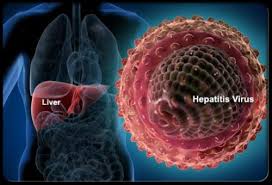Viral Hepatitis
Viral hepatitis is an inflammatory condition in the liver tissue caused by a viral infection. There are several different types of viral hepatitis as a result of the virus that causes the disease. In most cases, the source of the disease is the result of infection of three basic viruses: the hepatitis A, B or C virus (ischemic hepatitis, hepatitis long incubation and hepatitis-like hepatitis). Antibodies to one of these viruses can lead to viral hepatitis, accompanied by symptoms that are spread over a wide range of risks. Some of these infections are accompanied by mild and virtually inconceivable symptoms, but other symptoms may lead to liver breakdown, coma and death (if no alternative liver is found).
Hepatitis A is a relatively mild disease that does not persist for a long time. But hepatitis B and hepatitis B, C or type D cause long-term symptoms and require long and continuous medical treatment.
Viral hepatitis D is found only in people who have previously been exposed to a type B virus. Another type of virus responsible for viral hepatitis is the hepatitis D virus, which is mainly common among people who visited exotic land Multiple morbidity with viral infection (mainly in areas where the population has not received appropriate vaccinations).
Viral hepatitis infection can be transmitted from one person to another in several different ways, depending on the virus responsible for the disease, such as:
Contact with the faeces of a person infected with the hepatitis virus (mainly hepatitis A virus).
Eat seafood contaminated with contaminated sewage (mainly with hepatitis A virus).
Contact with infected blood, vaginal secretions, semen and breast milk (mainly hepatitis B virus).
Unprotected sexual intercourse with a sick person (mainly HBV and C).
Use of used or contaminated injections (hepatitis B, C and D).
In order to reduce the risk of exposure to the virus as a result of transfusion of infected blood, hospitals are conducting many tests and tests to eliminate the possibility of the presence of the virus in blood meals provided to patients. The risk of hepatitis C virus is 1: 100,000.
Hepatitis may be caused by different causative factors, such as: excessive alcohol consumption, drug therapy (a small group of drugs known to cause hepatitis), herpes simplex virus, and even a bacterial infection that can cause hepatitis Classified as viral hepatitis and treated slightly differently, since the source of the disease is different).